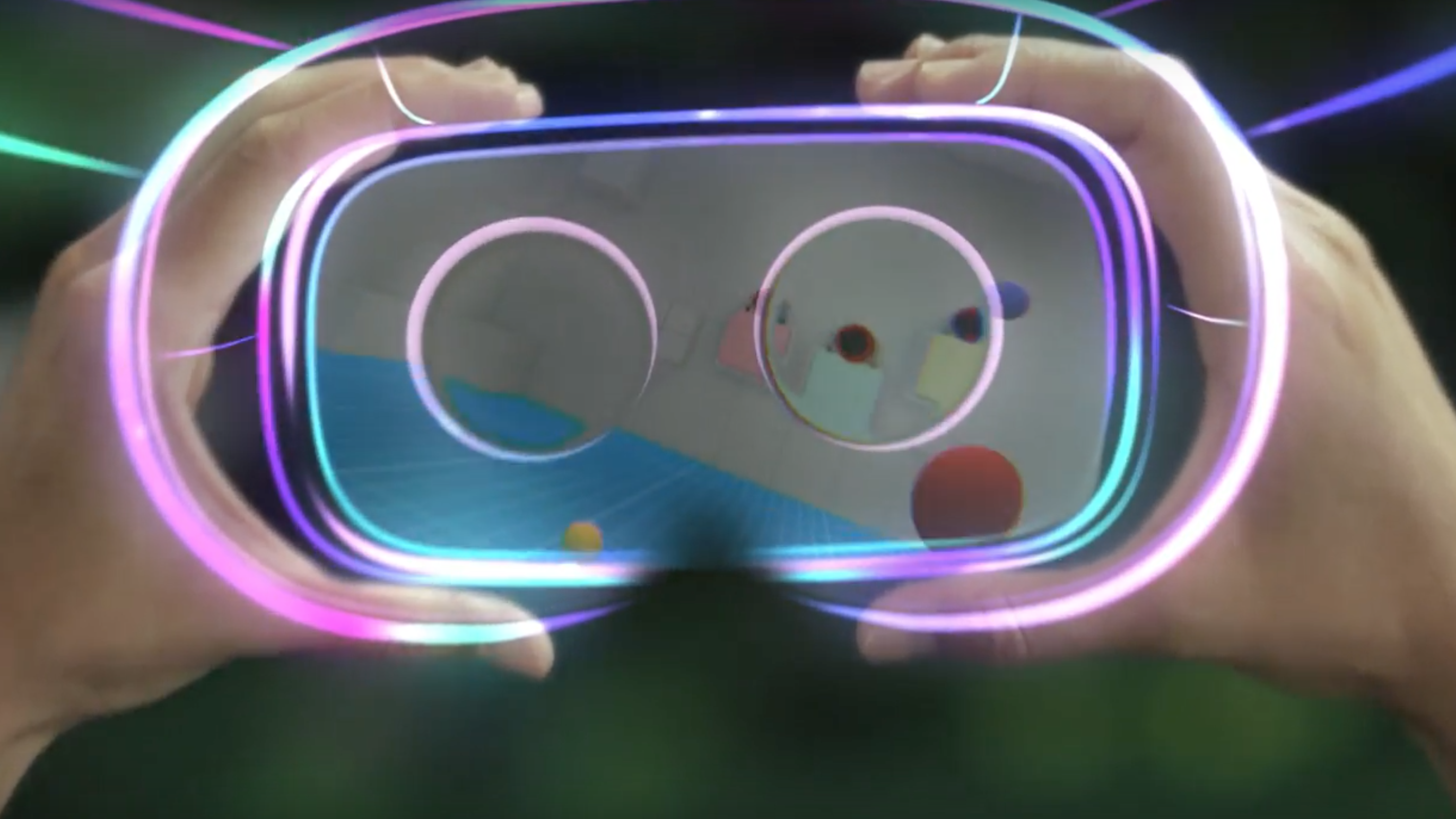Google develops standalone VR headsets
New platform doesn't need to be powered by a smartphone or computer

A free daily email with the biggest news stories of the day – and the best features from TheWeek.com
You are now subscribed
Your newsletter sign-up was successful
Google has announced at its annual I/O conference that it will produce "standalone" virtual reality (VR) headsets that do not need to be operated by an external device.
The standalone platform has been co-developed with wireless technology firm Qualcomm, says Alphr. The partnership has already created a pair of prototype headsets allowing hardware manufacturers "to make their own models based on the technology".
As no external device, such as a smartphone or computer, is required to power the headsets, the website says that users won't have to worry about tripping over wires and "latency should be non-existent". This means there will be no pause between the user's movements and the image on the screen.
The Week
Escape your echo chamber. Get the facts behind the news, plus analysis from multiple perspectives.

Sign up for The Week's Free Newsletters
From our morning news briefing to a weekly Good News Newsletter, get the best of The Week delivered directly to your inbox.
From our morning news briefing to a weekly Good News Newsletter, get the best of The Week delivered directly to your inbox.
While regular VR headsets rely on an array of onboard and exterior sensors to track user movements, ArsTechnica says that Google's standalone platform will use "World Sense" technology to offer better tracking compared to other VR headsets on the market.
There's no word on how "World Sense" functions, but the site says that all sensors used to track head movements will be located onboard the device.
The tech giant is "still experimenting with products and designs to see what will capture consumers' attention", says the Financial Times, while trying to avoid situations similar to the unsuccessful 3D television.
Standalone VR headsets are not a new phenomenon, adds the newspaper, as Intel and Oculus have "previously shown off their own prototypes".
A free daily email with the biggest news stories of the day – and the best features from TheWeek.com
But the paper says Google is the only manufacturer to have a device that will be available for consumers to buy.
While a release date for the device has yet to be announced, HTC and Lenovo are developing headsets using Google's standalone platform. These are expected to launch later this year.
Google I/O event runs until 19 May.
-
 Local elections 2026: where are they and who is expected to win?
Local elections 2026: where are they and who is expected to win?The Explainer Labour is braced for heavy losses and U-turn on postponing some council elections hasn’t helped the party’s prospects
-
 6 of the world’s most accessible destinations
6 of the world’s most accessible destinationsThe Week Recommends Experience all of Berlin, Singapore and Sydney
-
 How the FCC’s ‘equal time’ rule works
How the FCC’s ‘equal time’ rule worksIn the Spotlight The law is at the heart of the Colbert-CBS conflict
-
 Will AI kill the smartphone?
Will AI kill the smartphone?In The Spotlight OpenAI and Meta want to unseat the ‘Lennon and McCartney’ of the gadget era
-
 Is social media over?
Is social media over?Today’s Big Question We may look back on 2025 as the moment social media jumped the shark
-
 Has Google burst the Nvidia bubble?
Has Google burst the Nvidia bubble?Today’s Big Question The world’s most valuable company faces a challenge from Google, as companies eye up ‘more specialised’ and ‘less power-hungry’ alternatives
-
 How the online world relies on AWS cloud servers
How the online world relies on AWS cloud serversThe Explainer Chaos caused by Monday’s online outage shows that ‘when AWS sneezes, half the internet catches the flu’
-
 Is the UK government getting too close to Big Tech?
Is the UK government getting too close to Big Tech?Today’s Big Question US-UK tech pact, supported by Nvidia and OpenAI, is part of Silicon Valley drive to ‘lock in’ American AI with US allies
-
 Google: A monopoly past its prime?
Google: A monopoly past its prime?Feature Google’s antitrust case ends with a slap on the wrist as courts struggle to keep up with the tech industry’s rapid changes
-
 South Korea's divide over allowing Google Maps
South Korea's divide over allowing Google MapsTalking Points The country is one of few modern democracies where the app doesn't work
-
 Google avoids the worst in antitrust ruling
Google avoids the worst in antitrust rulingSpeed Read A federal judge rejected the government's request to break up Google